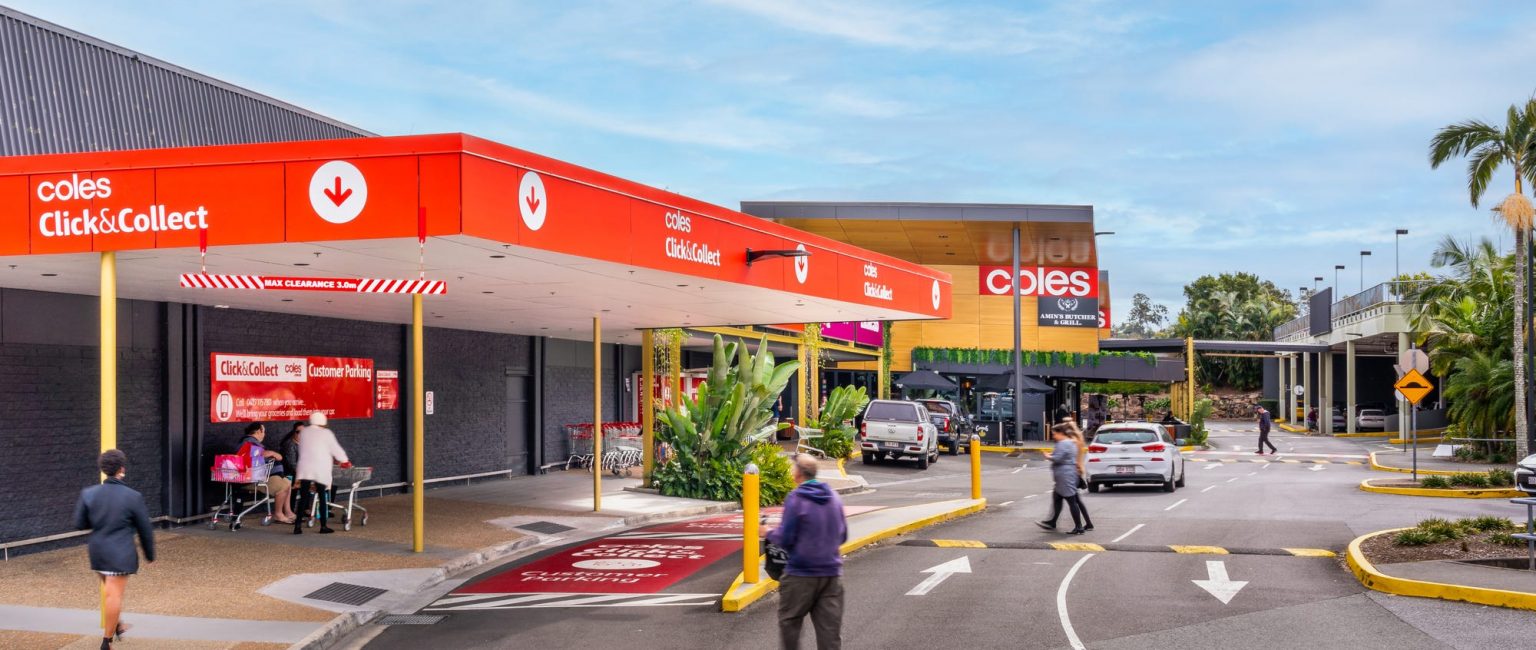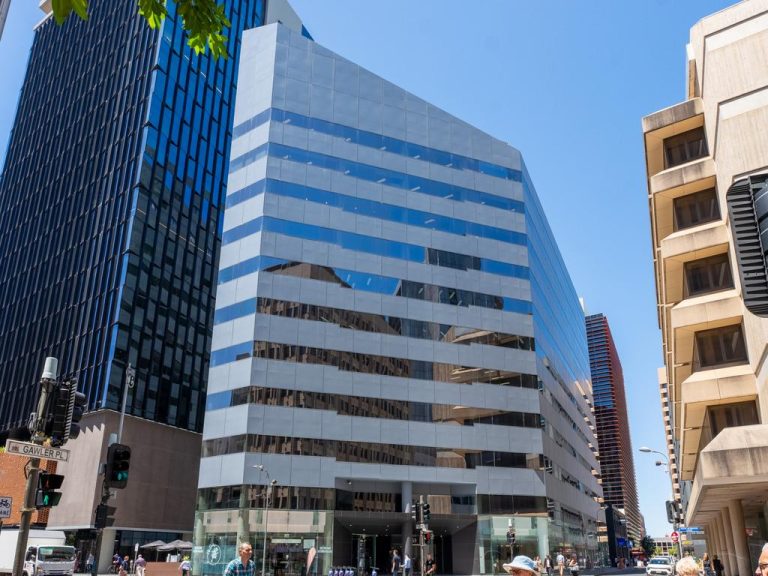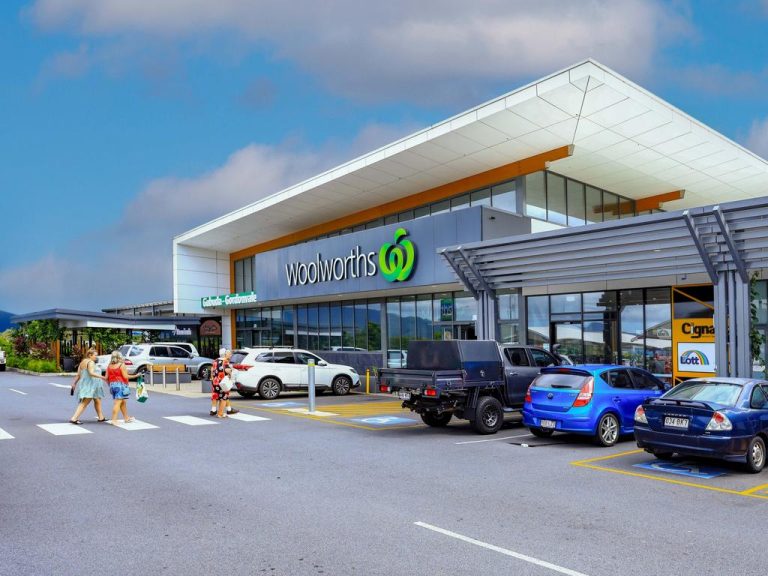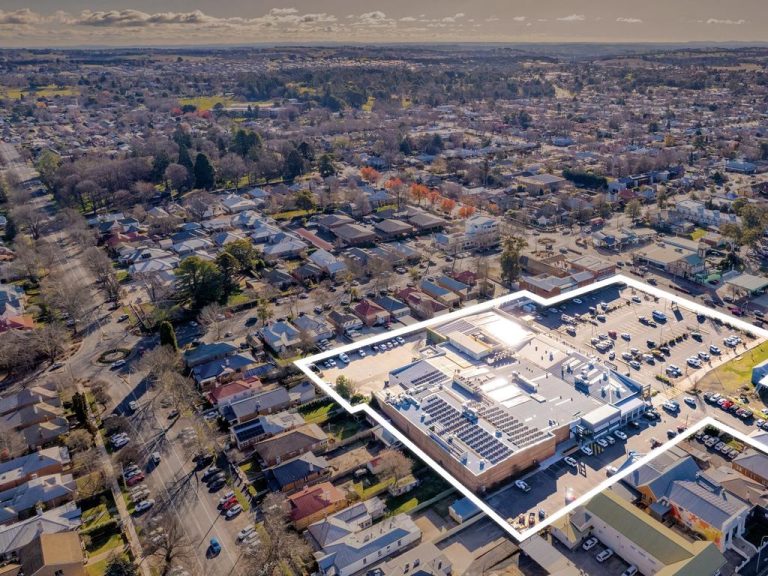Hot demand for neighbourhood shopping centres as inflation and rates rise

Having proven their worth during the pandemic, neighbourhood shopping centres remain in hot demand from investors as interest rates and inflation soar.
Individual neighbourhood shopping centres – smaller malls with a supermarket as the major tenant – all the way up to portfolios of local malls worth as much as half a billion dollars are changing hands following a record year of transaction activity in 2021.
PropTrack economist Anne Flaherty said investors are attracted to defensive assets in the current economic climate and to the daily needs retail offering of supermarket-anchored neighbourhood centres.
“Throughout the pandemic we saw investors shift away from retail assets with a high exposure to discretionary spending in favour of more defensive assets,” she said.
“While lockdowns are no longer an issue, investors are continuing to target assets with defensive income streams in response to new economic challenges.
“This shift is behind the rise in demand we have seen for neighbourhood centres anchored by essential retailers such as supermarkets and grocery stores.”

Supermarket-anchored neighbourhood shopping centres appeal to investors seeking defensive assets in the current economic climate. Picture: realcommercial.com.au/for-sale
Neighbourhood shopping centres have been the most resilient retail asset class during the pandemic, as local and convenience-based malls benefitted from people shopping locally.
JLL’s Jacob Swan and Sam Hatcher, who along with CBRE agents are selling a portfolio of five Queensland centres, said investor interest and demand for neighbourhood retail has once again heightened.
“A strong shift towards defensive assets with low-income volatility is occurring given macro uncertainty,” they said in a statement about the portfolio sale by CVS Lane Capital Partners and Consolidated Properties Group.
“There remains significant equity capital available for low-risk retail assets – from a range of domestic and offshore institutional sources, such as pension funds and unlisted core funds.
“As a result, we’re seeing a tactical reallocation towards neighbourhood retail centres, underpinned by a strong daily needs offering, given the resilient performance throughout COVID-19 and the high-income returns offered relative to prime assets in other sectors.”
According to JLL data, last year 61 neighbourhood centres transacted nationally with a record deal volume of $2.45 billion, 22% above the previous 2019 high.
Ms Flaherty said the increase in investor demand has supported strong yield compression for neighbourhood centres which, according to CBRE, sharpened by more than 40 basis points nationally year-on-year to June.

The focus on daily needs non-discretionary shopping is a major part of the appeal of neighbourhood malls. Picture: realcommercial.com.au/for-sale
Neighbourhood malls highly sought-after as inflation rises
Ms Flaherty expected neighbourhood centres to remain highly sought-after as inflation and interest rates continue to rise.
The rising cost of living and higher rates will impact household spending, although the latest Australian Bureau of Statistics data showed retail sales volumes continued to rise in the June quarter.
“So far retail spending has proved resilient, however the rate of growth has slowed considerably,” Ms Flaherty said.
She noted that retail turnover increased by just 0.2% in June, which was the slowest rate of monthly growth seen this year.

Inflation, including prices for essentials such as groceries, is rising at the same time as interest rates go up. Picture: realcommercial.com.au/for-sale
Ms Flaherty said non-discretionary inflation – for essential goods and services as food and fuel – has been particularly high, up 7.6% annually compared to 4% for discretionary costs for optional purchases.
“With consumers forking out more on non-discretionary items, they will likely tighten their belts in other areas.
“With both inflation and interest rates predicted to move even higher over the second half of the year, retail spending is expected to decline, particularly for non-discretionary items.
“This is likely to contribute to an even greater focus by investors on defensive assets such as essential retailers.”
CBRE’s Simon Rooney said neighbourhood centre assets are particularly attractive in the current high inflation environment, given that rental growth generally aligns with underlying inflation.
“Also, rising interest rates have historically not impacted on grocery sales volumes, compared with other spending, which makes neighbourhood centres particularly resilient.”
He said CBRE data suggested that nationally, neighbourhood centre capital values have risen at twice the rate of inflation over the past 20 years.
More neighbourhood centres hit the market, including $500m offerings
CVS Lane and Consolidated Properties Group have put five of their South East Queensland neighbourhood shopping centres on the market, reported to be worth $500 million.
CVS Lane CEO Lee Centra said they decided now is a good opportunity to test the market for a potential sale given the unprecedented high demand for this asset class.
“CVS Lane and CPG have received multiple unsolicited offers for the assets over the past 18 months, reflecting this unprecedented level of demand,” Mr Centra said.
“The assets have gone from strength to strength in terms of their valuations and sales performances and proven very resilient in the face of major disruptions in recent years, such as the pandemic and severe weather events.”

Pavillions Palm Beach is part of a portfolio of five Queensland neighbourhood shopping centres up for sale. Picture: realcommercial.com.au/for-sale
The five centres – at Karalee, Palm Beach, Wilsonton, Springwood and Keperra – are all anchored by either Coles or Woolworths supermarkets, and in some cases both. The portfolio is being offered in one line, on a single asset basis or any combination of assets.
One of Australia’s best-performing shopping centres, the St Ives Shopping Village on Sydney’s north shore, is for sale along with 11 adjoining properties and is expected to fetch about $500 million.
The family-owned centre is anchored by Woolworths, Coles and Harris Farm Markets and is being sold in one line with the adjoining properties, creating an amalgamated development site of more than 25,000sqm.
Colliers’ Lachlan MacGillivray said demand for town centre assets is exceedingly high following a record year of sales in 2021.
“As one of the last key privately-owned retail assets in the country, combined with the trophy nature of this unique and highly-ranked asset, we expect strong demand from a wide range of international buyer groups,” he said.

A portfolio of five neighbourhood shopping centres recently sold for $180 million. Picture: realcommercial.com.au/sold
Other recent deals include SCA Property Group’s $180 million acquisition of five neighbourhood centres in Queensland, Adelaide and Perth, and the $81.5 million sale of Perth’s Forest Lakes Shopping Centre to Greenpool Capital and Savills Investment Management.
Individual neighbourhood malls currently up for sale include the Rivergum Village Shopping Centre in Melbourne’s Mill Park. It is anchored by a Woolworths and has a medical centre and pharmacy, nine specialty shops and three additional tenants including a childcare centre.

Individual neighbourhood shopping centres like Melbourne’s Rivergum Village are also being sold. Picture: realcommercial.com.au/for-sale
Stonebridge Property Group’s Kevin Tong said Rivergum Village provided both income security and growth, with minimal specialty tenants and long leases to key anchors including fast food, childcare and a petrol station.
“Given the recent lack of comparable investments, our Asia Practice team will be anticipating strong Asian interest for the asset, given the metropolitan location and significant land parcel,” Mr Tong said.







